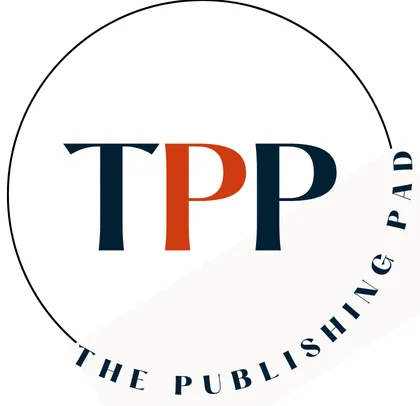“I’ve always wanted to write a book… I just don’t know where to begin.”
If you’ve ever said that out loud or even just thought it, know that you’re not alone. Maybe you’ve had a story brewing inside you for years. Maybe friends have told you, “You should write a book!” after hearing your incredible life experiences. But every time you sit down to start, you feel overwhelmed, unsure, or downright stuck.
The truth is that starting a book is often the hardest part. But once you break the process into manageable steps, it becomes far more approachable and even exciting.
In this guide, we’ll walk you through how to begin writing a book, whether it’s about your life, a children’s story, or the novel you’ve dreamed about for years. Along the way, we’ll show you how to stay focused, avoid overwhelm, and actually enjoy the process.
Resource for Aspiring Writers: At The Publishing Pad, we help aspiring authors go from idea to execution. Don’t miss our free guide: 10 STEPS TO FINALLY START WRITING YOUR BOOK.
Why Most People Struggle to Begin Writing a Book
Most new authors get stuck before they ever type a word. Why?
- Perfectionism: You feel like your first draft has to be flawless.
- Lack of clarity: You’re unsure what kind of book to write or who it’s for.
- Fear of judgment: You worry about what others will think.
- No roadmap: You don’t know the steps to take, so you stall.
These hurdles are completely normal. But the key to progress is this: you don’t need to have it all figured out to begin. You just need a direction.
Clarify Your Purpose and Audience
Before you start chapter one, pause to ask yourself:
- Why am I writing this book?
- Who am I writing it for?
- What do I want readers to feel, learn, or do after reading?
Knowing your “why” and your ideal reader keeps your writing focused and purposeful. For example:
- If you’re writing a memoir, your purpose might be to share life lessons and connect emotionally with readers.
- If you’re writing a children’s book, you might aim to entertain and teach in a simple, imaginative way.
Pro Tip: Writing a “reader profile” helps you to stay aligned with your audience as you draft.
Choosing the Type of Book You Want to Write
Your first book doesn’t have to be a grand epic. In fact, simpler is often better.
Here are a few common starting points:
➤ How to Begin Writing a Book About Your Life
Start by defining the core theme of your life story. Ask: What parts of my life would help others feel seen, inspired, or transformed?
Avoid trying to write an autobiography. Instead, focus on a powerful slice like overcoming hardship, starting over, or building something meaningful.
For memoir structure inspiration, Reedsy offers free templates.
➤ How to Begin Writing a Children’s Book
Children’s books require simplicity, imagination, and clarity. Begin with:
- A relatable character
- A simple conflict or goal
- A fun, rhythmic tone
Think visually! Many children’s books are driven by illustrations. Plan scenes that come alive visually as well as verbally.
Tools like Storybird can help spark ideas for children’s stories.
➤ Unsure What to Write?
Start with freewriting. Jot down every idea you’ve ever considered. One of them will stand out. You can also review your blog posts, journals, or even social media captions for patterns or themes.
First Steps: Brain Dump, Mind Maps & Idea Capture
Once you’ve chosen your direction, it’s time to empty your mind onto the page. This phase is all about capturing, not editing.
Do a Brain Dump
Spend 30–60 minutes writing down everything you want to include—stories, lessons, quotes, scenes, dialogue, anything. No structure. Just let it all flow.
Try Mind Mapping
Create a mind map around your core theme. Place your main idea in the center and branch out with subtopics, characters, events, or chapters. This is especially helpful for visual thinkers.
Learn about tools that help you build a mind map from Green Where U Water it.
Organize Your Notes
Once you’ve brain-dumped, group related ideas together. These clusters can later become chapters or sections.
This early idea-capturing phase lays the groundwork for a smoother outline and draft later.
Outline Your Book Like a Pro
You don’t need to be a hyper-organized planner to benefit from an outline. Even a loose structure can save you hours of rewriting and second-guessing later.
Here’s how to build a beginner-friendly book outline:
Choose Your Format
- Linear outline: List chapters or scenes in order from beginning to end.
- Storyboard method: Use sticky notes or a whiteboard to visualize the story or structure.
- Snowflake method: Start with one sentence summarizing your book, then expand it into paragraphs, then chapters. Learn how it works here →
Example: Memoir Outline
- Introduction: The defining moment that sparked your story.
- Conflict: The challenge or obstacle you faced.
- Turning Point: The change that began within you.
- Resolution: How you overcame it or what you learned.
- Conclusion: Reflecting on the journey and key takeaways for the reader.
No matter your genre, the goal is to create a roadmap that keeps your writing on track.
Create a Simple Writing Routine You’ll Stick To
Consistency trumps intensity.
Rather than aiming to write 2,000 words once a week, aim for 300–500 words daily. Even 15–30 minutes a day adds up fast.
Steps to Build a Writing Habit:
- Set a specific time every day or week (same time, same place).
- Use tools like Scrivener or Google Docs for distraction-free writing.
- Track your progress. A simple word-count tracker or calendar can boost motivation.
According to SelfPublishing.com, writers who commit to a daily word goal finish books significantly faster.
Overcoming Fear and Perfectionism
Every writer battles inner doubts. You’re not alone if you’re thinking:
- What if this isn’t good enough?
- What will people think?
- I’m not a “real” writer.
Here’s the truth: your first draft isn’t supposed to be perfect. It’s supposed to be written.
Try These Mindset Shifts:
- Think of your first draft as a sandbox—you’re just building shapes.
- Separate writing and editing into different sessions.
- Join writing communities or peer groups to remind yourself that the struggle is part of the process.
Where to Get Support
Writing doesn’t have to be a solo journey. In fact, support can be the difference between finishing your book and giving up halfway through.
Options for Support:
- Writing coaches (like the team at The Publishing Pad) can help you plan, stay accountable, and stay motivated.
- Online communities like Scribophile, Writers Helping Writers, or Facebook writing groups.
- Beta readers or critique partners to give you early feedback.
How The Publishing Pad Can Help You Begin
At The Publishing Pad, we specialize in helping aspiring authors like you take the first confident step toward writing a book.
Whether you’re writing a memoir, a children’s story, or the next great novel, we provide clarity, tools, and a supportive path to begin and finish your manuscript.
Get our FREE guide: “10 STEPS TO FINALLY START WRITING YOUR BOOK”—a powerful, practical starting point packed with clarity and encouragement.
Conclusion
Starting a book can feel overwhelming, but it doesn’t have to be. Once you define your “why,” choose your topic, and break it into manageable steps, you’ll build real momentum. Remember: every finished book once started with a messy, imperfect first sentence.
So… what’s stopping you from writing yours?
Frequently Asked Questions (FAQs)
1. How do I start writing a book with no experience?
Begin by freewriting your ideas and experiences. Don’t worry about structure or grammar, just get words on the page. Use tools like mind maps and outlines to organize your thoughts gradually.
2. How long should my first book be?
It depends on the genre, but here’s a general guide:
- Memoir or nonfiction: 50,000–70,000 words
- Children’s picture book: 500–1,000 words
- Novel: 60,000–100,000 words
3. Should I write my book about my life?
If your story offers insight, inspiration, or transformation to others, it’s worth sharing. Focus on a specific theme or period instead of trying to cover your whole life.
4. Do I need an editor or writing coach to begin?
No, but having a coach or editor later in the process can be incredibly helpful. At the beginning, just focus on getting your ideas out. Later, professionals can help shape and polish your draft.
5. What tools can help me start writing?
Try free tools like Google Docs, Evernote, or Notion. For planning and outlining, consider Scrivener, Milanote, or even a good old-fashioned notebook.

